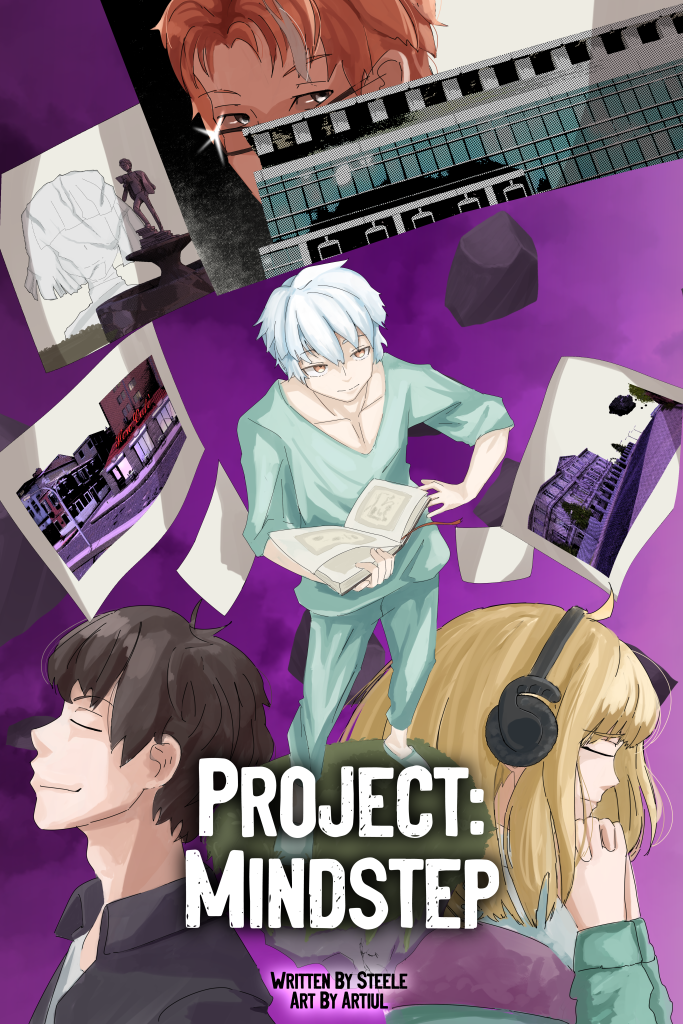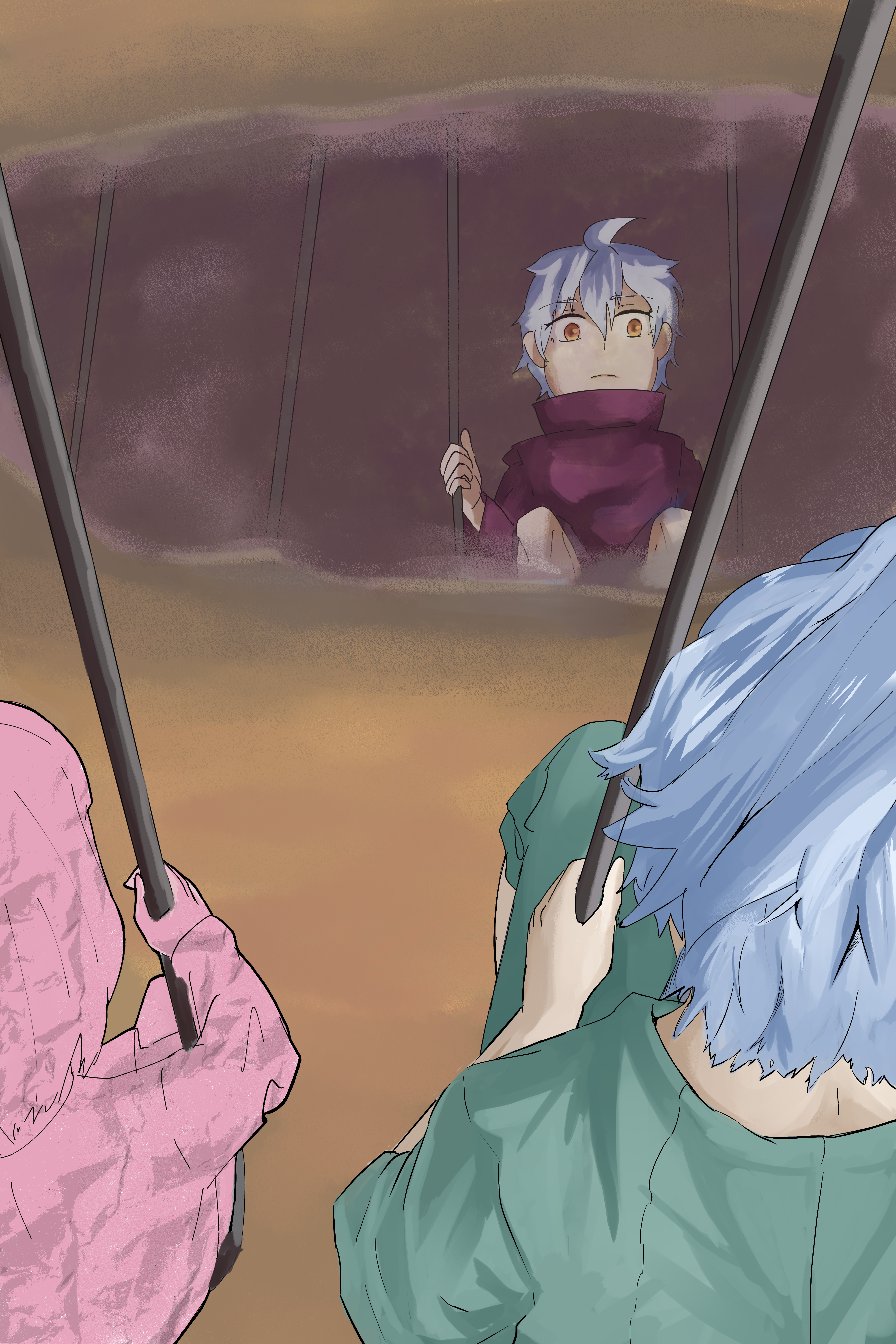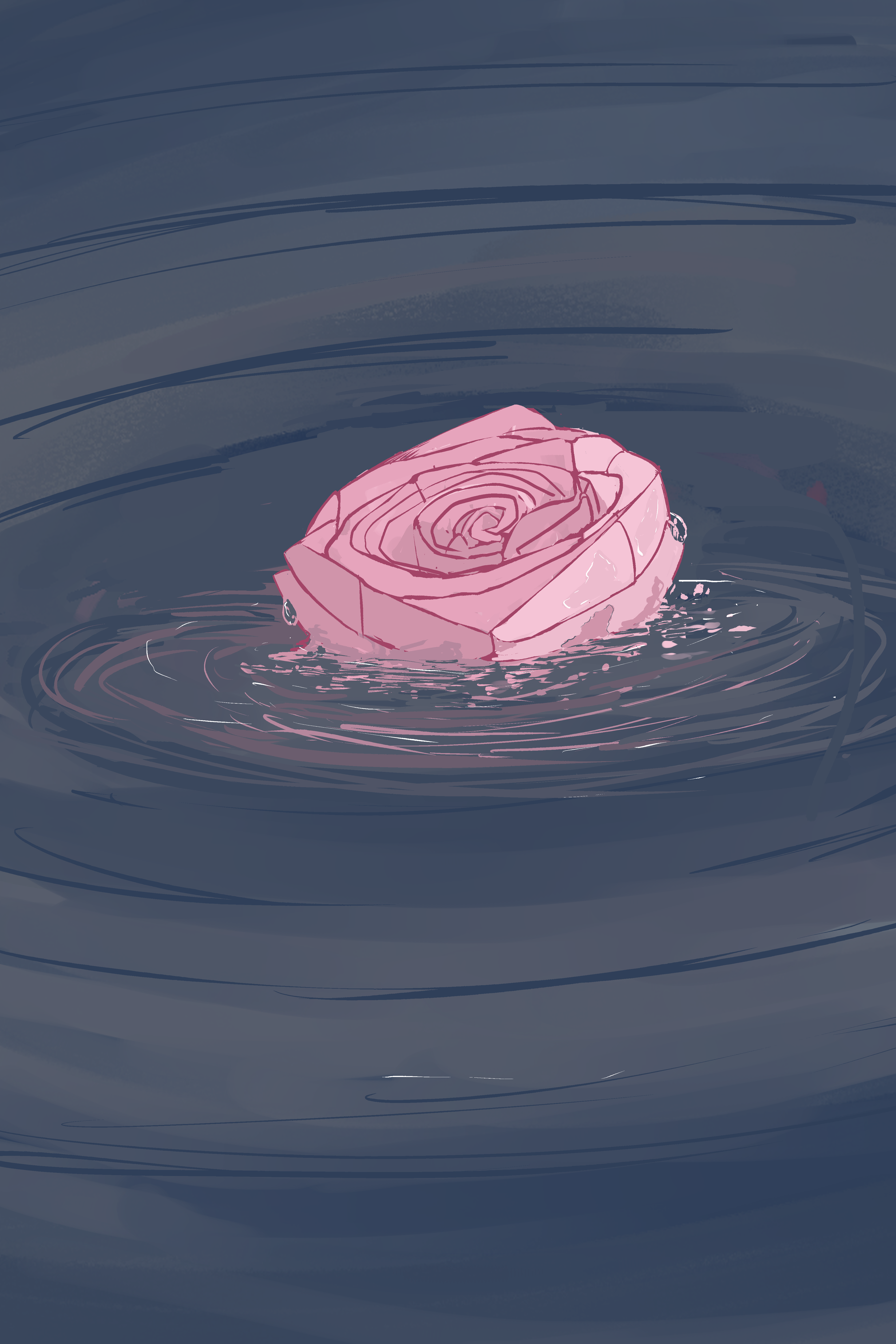
Project Mindstep : Book 1
Posted on Dec 21, 2024Chapter-3: The Name of The Rose
Asher discovers a playground of fragile, paper-like children stuck in unnatural motions. A mysterious girl on a swing hints at someone shaping the world before folding into a pink rose, leaving Asher haunted by her cryptic warnings.
The Name of The Rose
Shakespeare’s words surfaced unbidden in my mind: “Though this be madness, yet there is method in’t.”
Hamlet had spoken of feigned madness—a ruse cloaking his calculated revenge. But here, in this strange, disparaged world, it felt like a fundamental truth. Was the chaos of this place a mask for something greater? Some grand, incomprehensible design? Or was it governed by the whim of a madman—or worse, by something vast and uncontrollable, beyond reason’s reach?
I had nothing to ground me in reality except the cold concrete pressing against my palms. As I leaned back on my hands, I was left with a swirl of questions. They spiraled through my thoughts like the storm overhead until all sharpened into a single point: How was I supposed to wake up from a dream like this?
I recalled something Doctor Josiah had once told me. “You ever feel stuck in a dream?” he’d asked, tapping his pen against a clipboard with an almost rhythmic precision.
"All the time,” I’d replied, relieved to admit it aloud.
He’d paused then, looking directly at me as if there were something in my eyes that bothered him. “Dreams,” he’d said, “a colleague of mine once described them as a window into the soul—a loose thread, an inconsistency. If you’re stuck, find it and pull. That’s your ‘reality check.’”
At the time, I didn’t see the value in what the Doctor had shared with me. I’d had plenty of weird dreams to know that… well, dreams were just dreams—they ended when they ended. Yet now, perched on this island suspended in a hazy void, Josiah’s advice was all I had.
The irony wasn’t lost on me, of course. I’d read plenty of novels about characters trapped in ethereal planes, nearly tearing the pages apart as they stubbornly refused to acknowledge their situation. And now? Here I was, living the trope.
No excuses. No denial. If this was a dream, I had to find the thread.
I started simple: opening my left eye, then my right, reversing the order. Nothing.
Next came the pinch test. I grabbed my forearm and twisted sharply. “Ow. Still stuck.”
A trick I’d frequently used for my dreams came to mind. The idea was that your mind couldn’t register boundaries during dreams, so if you pressed your finger into the center of your hand, it would pass straight through. Hesitating just long enough to second-guess myself, I pressed a finger against my palm and pushed—hard.
The sharp jolt felt like jamming my hand into a wall. I hissed through clenched teeth, cradling my finger, and kicked at a patch of dirt. Dust rose in lazy spirals, coating my pajamas and lodging in my throat. I dropped to the ground for a moment to recover.
After exhausting every cliché, a strange calm settled over me. Maybe the sheer fact that I could feel—the sting of pain, the roughness of the dirt, the cold of the concrete—was proof I was alive. A small comfort, but I’d take it.
“Alright, enough.” I brushed myself off and stood, eyes settling on the faint outline of a chain-link fence wrapped in a wide perimeter. It encircled a small park with a collection of tall trees, their shadows hiding whatever lay at the center.
The gate creaked as I passed through, the sound scraping against the concrete I had come to know so well.
Upon entering, I immediately took notice of a large playground. Children darted across its spaces—climbing ladders, hanging from monkey bars, racing between slides and swings. But as I drew closer, their movements became… clockwork.
A hand reached for a monkey bar but froze mid-swing, never moving to the next. A tumble down a slide looped endlessly, halting just before impact. Arms outstretched in a game of tag snapped back to their starting positions, as though guided by an unseen hand.
Their forms were thin, translucent—like grease paper.
I couldn’t believe my eyes.
And then I saw her.
A girl sat on a swing, her shape distinct from the others. Her paper was crisp and pink, folds deliberate and unmarred, as though crafted by careful hands. She swayed gently, her motion steady and unbroken, unlike the fractured rhythm of the other children. Beside her, a neighboring swing hung still, its chains strained and creaking under the tension.
Something about her presence drew me in, even as unease prickled at the back of my neck. Against better judgment, I stepped forward and took the seat beside her.
The swing dipped slightly under my weight, the chains groaning in protest. My hands gripped the cold metal, and I let the gentle motion carry me.
Beneath the swing, a shallow puddle reflected our movements. Its ripples caught the sway of the chains, warping the image. But as I stared, I realized the reflection wasn’t mine.
A boy sat in my place, wearing a purple turtleneck and shorts. He stared back at me with the same perplexed expression.
I glanced toward the girl’s reflection, expecting to see her beside him. But there was nothing—no faint outline, no distortion in the water’s surface.
Only me.

My gaze lifted to her as she raised her head.
“What are you?” she asked. Her voice was soft, yet there was an edge to it—like a knife hidden beneath silk.
The question struck me like a hurricane. I hadn’t expected her to speak, let alone cut so directly. “Do you mean… ‘Who are you’?” I replied cautiously.
She didn’t answer. Her swing rocked forward once, twice, thrice.
I pointed to myself. “My name’s Asher. What’s yours?”
Her head tilted slightly, her gaze shifting upward, as though searching for something in the space above us. The seconds dragged before she finally spoke.
“You’re not the first to come here, Asher,” she said, her tone flat yet laced with significance.
A frown tugged at my brow. “What do you mean?”
Her attention drifted toward the playground, where the paper children continued their infinite recursion.
“Someone else came before you. They’re creating something,” she said softly, almost as if speaking to herself. “They want something. They’ll do anything to get it.”
Everything she said felt important, but she didn’t bother elaborating. A twitch stirred at the edge of my cheek as I fought the urge to sigh. Cryptic kids might be eerie in movies, but here, her vagueness wasn’t unnerving—it was just irritating.
I let the silence linger a beat longer than comfortable before muttering, “That’s… helpful.” My voice was low, the sarcasm more for my own comfort than hers.
If she noticed, she didn’t show it. Instead, she raised an arm and pointed to the sky. Her paper finger moved in slow, deliberate arcs, as though sketching invisible lines across the stars. The swing beneath her creaked faintly, her rhythm replaced by this quaint, meticulous gesture.
“The stars are pretty,” she said quietly.
“Oh. Yeah, they are,” I replied without thinking.
I followed her gaze upward, and for the first time, I truly saw it.
Since I got here, I hadn’t concerned myself with the beauty of this place. The sky stretched endlessly above us, a deep, rich purple dusted with stars. They shimmered faintly, their light soft but unwavering. The swirling fog below seemed to amplify their glow.
Each star felt impossibly distant, yet comforting—tiny beacons standing defiant against the broken land and drifting debris around me. For a moment, I forgot about the girl, the playground, and even my questions. There was only the vast expanse above and the warmth it stirred within me.
Her finger continued to trace lines I couldn’t follow, mapping constellations visible only to her. But as I watched, her motion began to falter. At first, it was subtle—a faint tremor. Then, with each movement, it grew more pronounced, her paper hand trembling uncontrollably.
“Are you…” I began, my voice catching. The words stuck in my throat as I saw her finger freeze in mid-air, trembling before slowly turning toward something in the distance.
An estate.
Her voice broke the silence, trembling with a fear that sliced through the calm. “N-no,” she stammered, her body quivering. It wasn’t the same detached tone she’d spoken in earlier. She sounded terrified.
Her body began to fold inward, each layer collapsing with an eerie precision. Her arms, her legs, even her face—all folded seamlessly, like origami being undone in reverse. She shrank smaller and smaller, her figure retreating into itself, until what remained wasn’t a girl but a single rose.
A crisp pink rose.
It drifted downward, spinning delicately before landing in the shallow puddle beneath the swing. Ripples spread outward from where it touched, faint and fleeting, before the water grew still once more.
I stared at the flower, my hand hovering instinctively as if to reach for it. But I stopped. A weight settled in my chest—a silent warning, an understanding as innate as breathing:
Don’t interfere with the rules of a wonderland.

Hello Readers! It has taken a while to get to this point and I am incredibly excited to share Chapter 3 and onwards with you all. In January, the production of the chapters will continue. I wish you all a Happy New Year and happy reading! Steele